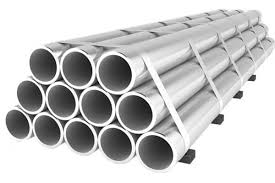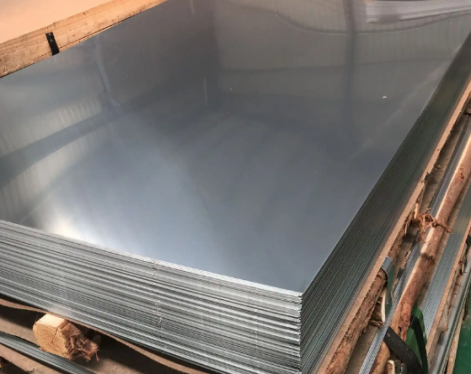1.ERW Steel Tube Means
ERW pipes, also known as Electric Resistance Welded steel pipes, are produced using a manufacturing process where the edges of the steel are melted and welded together to create a uniform cylindrical shape. This method utilizes heat and pressure to fuse the steel sheets, resulting in lightweight and versatile tubing suitable for various engineering and construction applications, including fencing, scaffolding, and domestic or commercial uses. Common erw tubes include erw casing pipe and erw carbon steel pipe. Proper storage of ERW tubes is important for various piping applications.2.Implication of Unreasonable Storage of ERW Steel Pipes
(1) Corrosion and erosion
Improper storage of erw tubing can lead to corrosion and erosion, which are major concerns due to the exposure of pipes to environmental elements when stored outdoors. This exposure can weaken the physical strength of the pipes over time, potentially increasing the risk of failure during construction or operation. Corrosion is especially problematic for tubes made from materials like cast iron and steel, as these materials are prone to rusting, further compromising the integrity of the pipes.
(2)Structural Failure
Improperly storing steel pipes can also put them under a lot of pressure or lead to damage that weakens them. Any damaged pipe can experience a structural failure after installation if this happens.In an oil pipeline, for example, the line is sealed and pressurized to help move oil over uneven terrain. Under such strain, a structurally weak pipe can burst, leading to a major oil spill.(3)Safety Risks
Improperly stacked ERW pipes can pose the risk of collapse or toppling, potentially causing harm to workers and the surrounding environment. This can lead to hazardous situations if the erw welded pipes are not securely stored, posing a threat to the safety of personnel and the integrity of the storage area.(4)Resource Waste
If steel ERW tubes are damaged or rendered unusable during storage due to improper handling or storage conditions, it leads to the wasteage of valuable resources. Additionally, addressing the issues arising from damaged ERW pipes may require additional time and cost for repairs or replacements, impacting operational efficiency and productivity.3.Storage Methods and Precautions of ERW pipe
(1)Storage Methods
a. Indoor Storage: If storing ERW steel pipes indoors, ensure the storage area is dry and well-ventilated to prevent rust formation. Pipes should be stacked on wooden pallets or racks, with adequate space between each stack to facilitate inspection and movement.b. Outdoor Storage: When storing ERW steel pipes outdoors, choose a flat, well-drained area away from moisture and direct sunlight. Pipes should be placed on raised platforms or wooden supports to prevent contact with the ground. Cover the pipes with weather- resistant materials such as tarps or plastic sheets to protect them from rain and snow.
c. Vertical Storage: Vertical storage is suitable for long-term storage of ERW pipes. Stack the pipes vertically on wooden or metal supports, ensuring they are stable and won't topple over. Use spacers between each layer to prevent deformation and facilitate air circulation.
d. Horizontal Storage: Horizontal storage is suitable for short-term storage or when space is limited. Lay the pipes flat on wooden supports, ensuring they are evenly supported along their length. Avoid stacking too many pipes on top of each other to prevent deformation and damage.
(2)Precautions
a. Handling: Handle ERW steel pipes with care to avoid dents, scratches, or other damage that may compromise their structural integrity. Use appropriate lifting equipment such as forklifts or cranes to move heavy pipes safely.b. Inspection: Regularly inspect stored pipes for signs of corrosion, damage, or deformation. Remove any damaged pipes from storage immediately to prevent further deterioration.
c. Protection: Protect ERW steel pipes from environmental factors such as moisture, sunlight, and extreme temperatures. Apply rust-preventive coatings or oils to the pipes if necessary, especially for long-term storage.
d. Organization: Maintain proper organization and labeling of stored pipes to facilitate inventory management and retri. Keep detailed records of incoming and outgoing pipes to track their usage and condition.
e. Security: Secure the storage area to prevent unauthorized access and theft of the pipes. Install security measures such as fences, locks, and surveillance cameras as needed.
By following these storage methods and precautions, you can ensure the safe and efficient storage of ERW steel pipes, minimizing the risk of damage and maximizing their lifespan.









